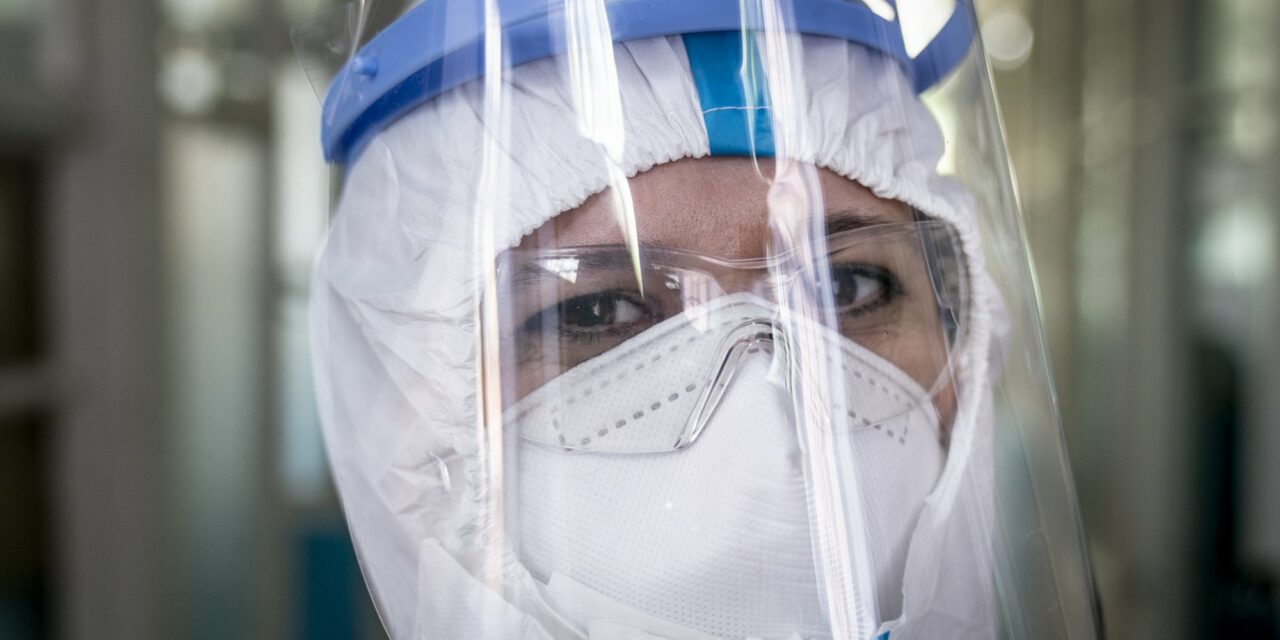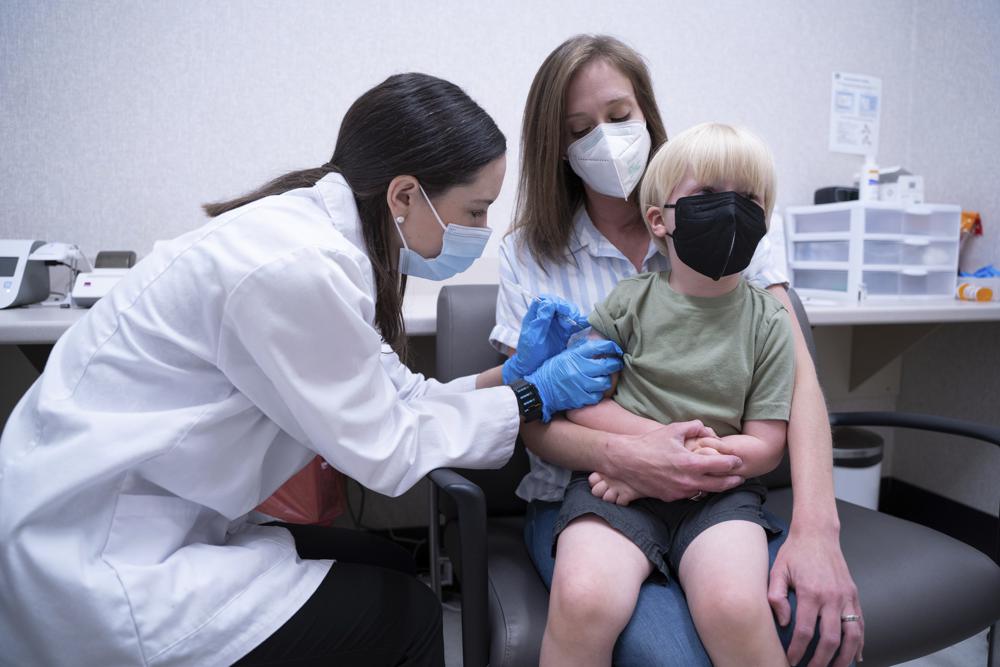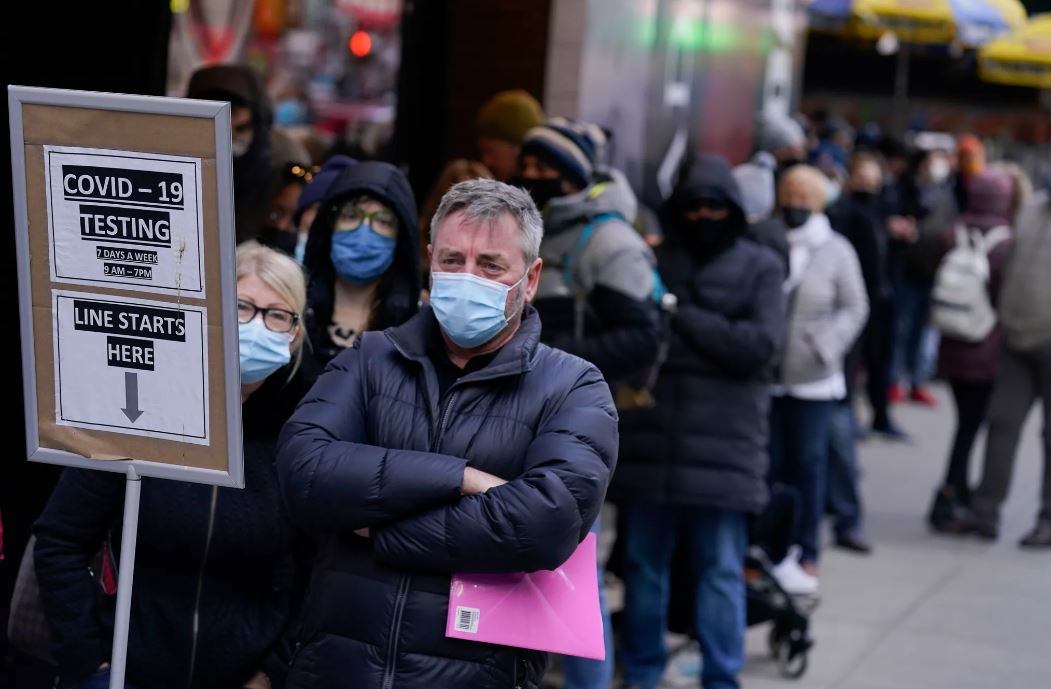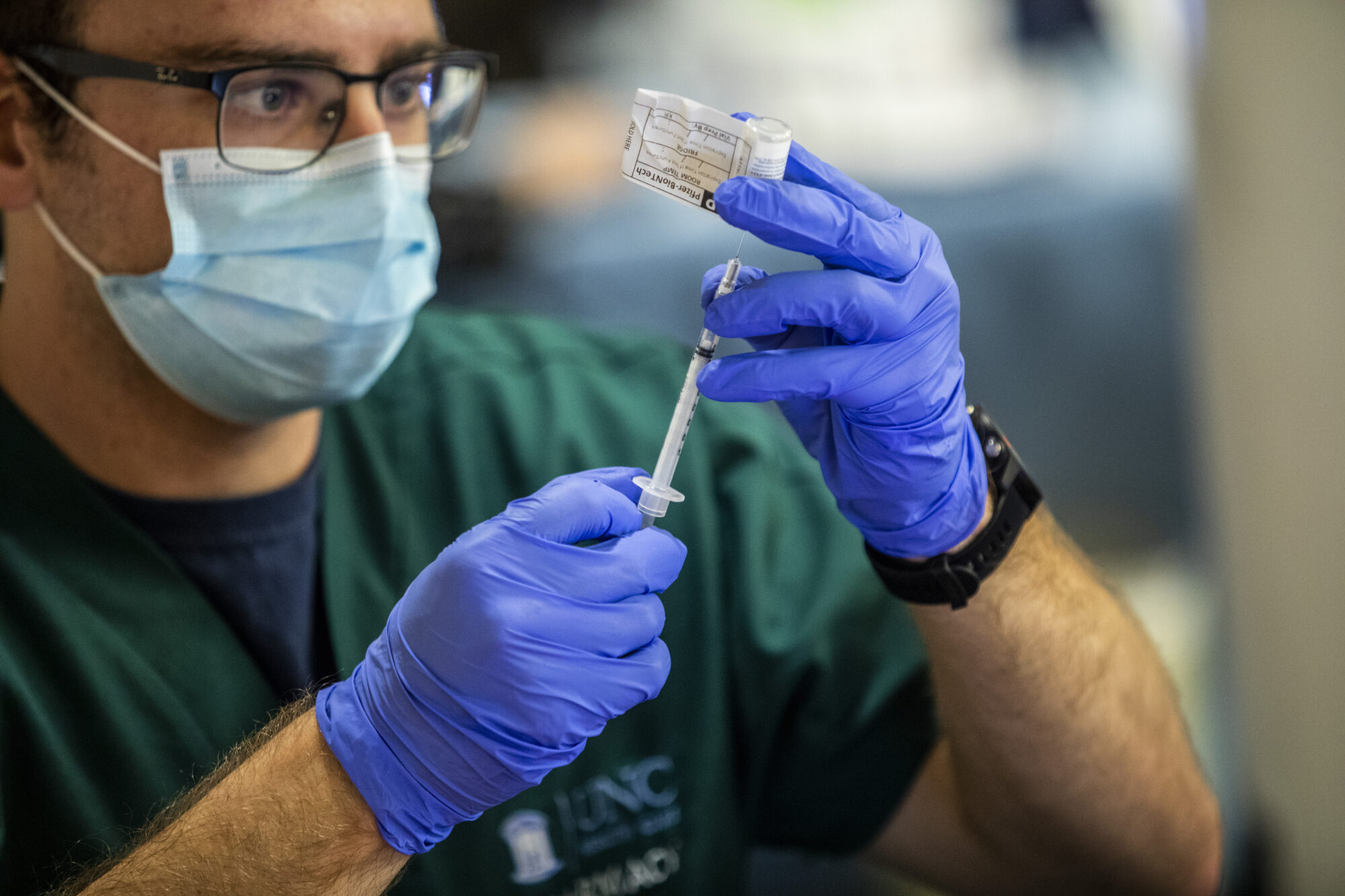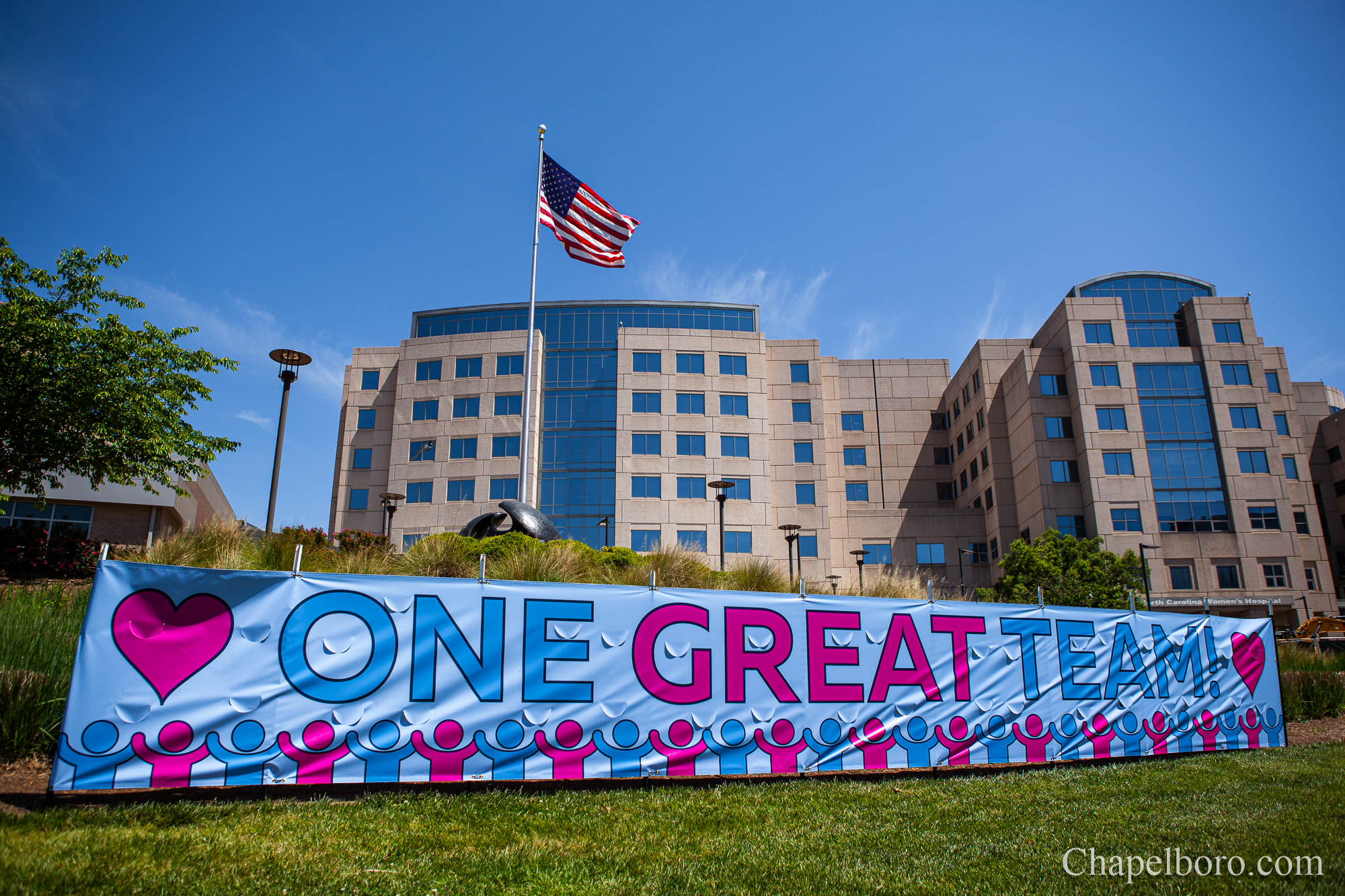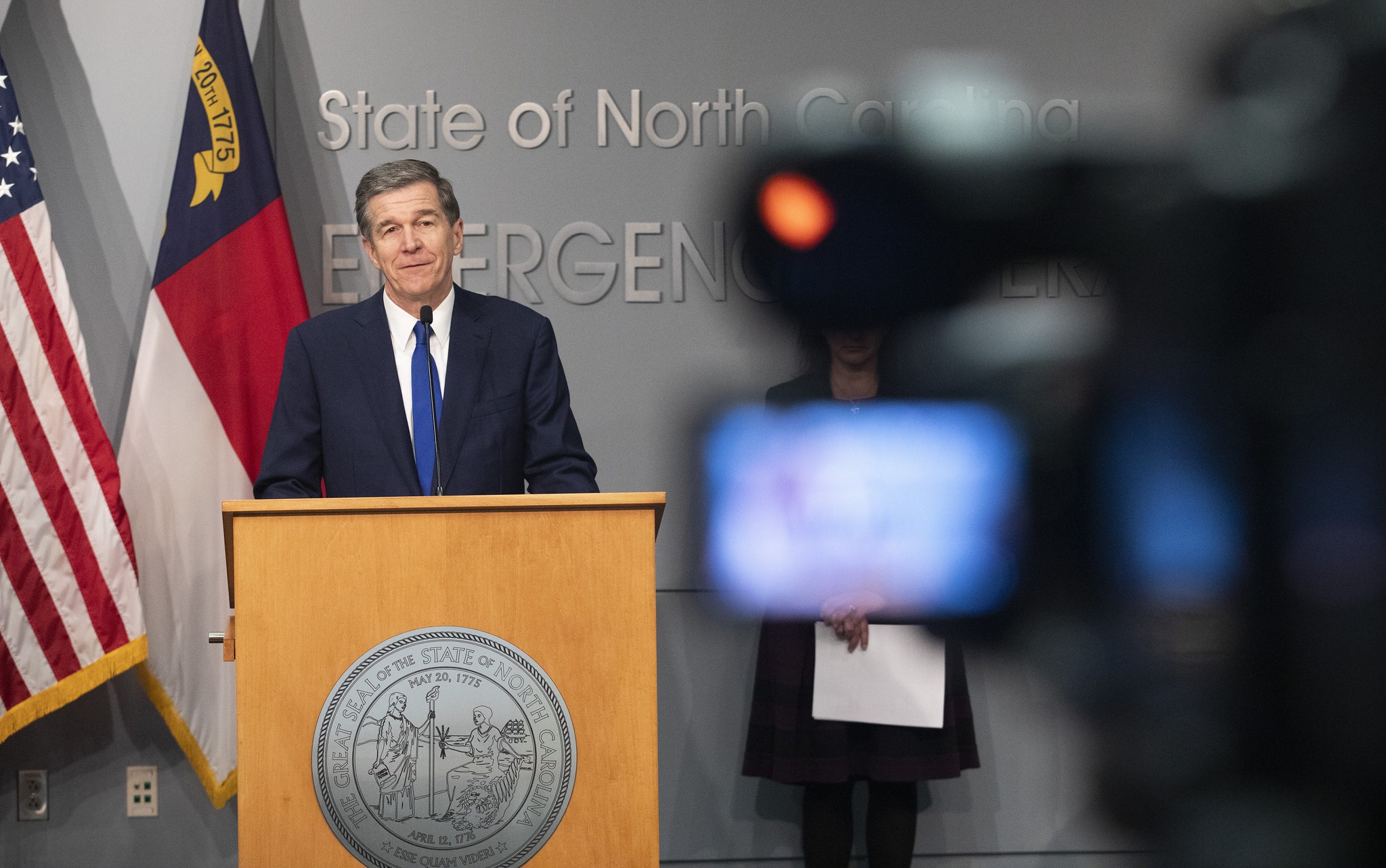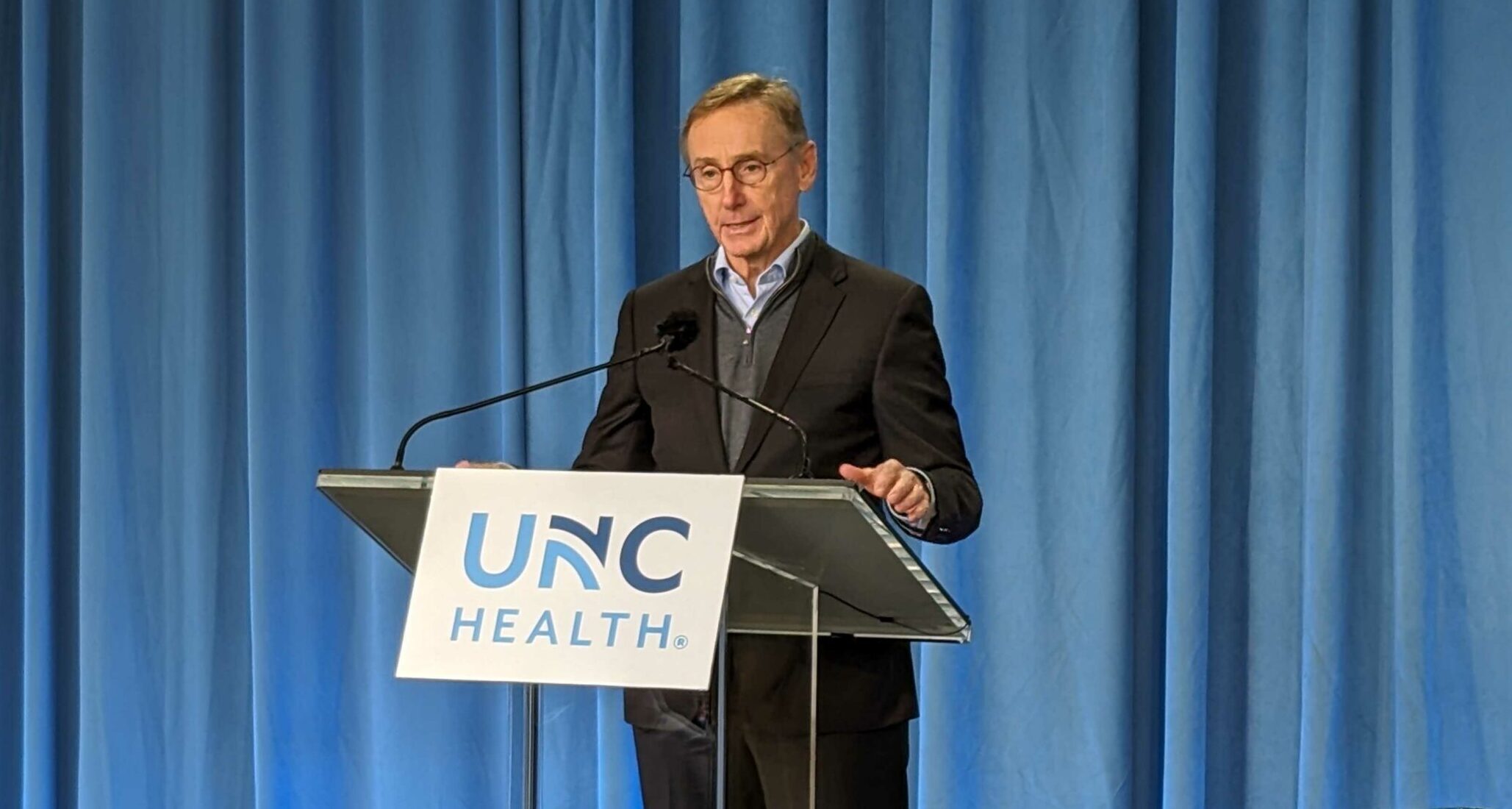Amid yet another surge of COVID-19 cases and ever-changing protocols and recommendations, healthcare systems and their employees continue to face burnout, staffing shortages and mental health crises.
In a matter of weeks, omicron has become the dominant variant in the United States, leading to reinstated mandates, increased hospitalizations, and spikes in cases both nationally and locally. Currently, North Carolina is reporting a test-positivity rate of nearly 22 percent. That’s the highest number since the pandemic began and well above the state’s five percent goal.
As we stretch into year three of the pandemic, and as new variants emerge and take their toll, the “new normal” we were so desperately searching for in 2020 has remained out of reach – especially for healthcare workers.
Dr. Crystal Schiller is a professor in the UNC department of Psychiatry and part of UNC Health’s Well-Being Program, which provides psychiatric and mental health support to healthcare workers throughout the UNC system.
Over the course of the pandemic, she said people have been leaving healthcare in droves because there are other jobs available where they can make similar pay with much less stress.
“The people who’ve stuck around are therefore working much longer hours than ever before,” Schiller said, “and having to work in environments that are much more stressful, with lots of PPE, and taking care of very, very sick patients and under conditions where patients aren’t necessarily taking the advice of medical professionals.”
Schiller said those who fail to follow CDC or local guidance when it comes to COVID mitigation measures – such as masking, social distancing, or vaccinations – are adding to the mental health burden of the state’s healthcare workers.
“So, they’re turning around and saving the lives of people as best they can even though they didn’t take their advice to begin with,” she said. “I think that’s created a lot of moral distress and just rampant burnout across the system.”
According to the Association of American Medical Colleges, multiple survey data now show that health care workers responsible for providing direct care for COVID-19 patients are more likely to have depression, anxiety, and mental distress.
Dr. Mehul Mankad is the Chief Medical Officer for Alliance Health. He echoed Schiller’s comments and said one of the greatest mental challenges he’s seen clinicians face is trying to educate populations that refuse medical advice only to end up in need of emergency care.
“To be met with the experience of rejection by potentially the patients that they’re serving or by society at large for the efforts that they do day in and day out, in which they risk their own lives, and the lives of their family potentially, absolutely is a kind of injury,” Mankad said.
According to data published by the Association of American Medical Colleges, the United States could see an estimated shortage of between 37,800 and 124,000 physicians by 2034, including shortfalls in both primary and specialty care. Additionally, the American Nurses Association is urging U.S. officials to declare the nursing shortage a national crisis.
As more healthcare workers leave the workforce during the pandemic, Mankad said one group he’s particularly concerned about is the country’s Direct Support Professionals. These are caregivers and those that directly support those with intellectual and developmental disabilities or mental health disorders.
“These are individuals who are towards the bottom of the pay scale,” Mankad said. “With the labor shortage throughout the United States, they have to make real life decisions, you know, do I risk my life working in this environment for the same $15 an hour or less that I could make working in retail.”
To help address present shortages, the U.S. Centers for Disease Control revised its guidelines to recommend that healthcare workers who contract COVID, but display mild-to-moderate symptoms, can return to work five days after symptoms first appear, down from 10 days previously.
President Joe Biden also said the military would deploy about 1,000 doctors, nurses, paramedics, and other medical personnel to help alleviate staffing shortages in the coming weeks.
Schiller said she believes the nation’s healthcare resources will be strained for the foreseeable future and that we need to confront that harsh reality as a community to make necessary changes.
“I don’t think there’s any quick fix to any of this,” Schiller said. “So many people are working very hard to try and address work shortages and the trauma that our healthcare system and healthcare workforce has faced. It’s going to take a really long time, quite frankly, to come back from this.”
Lead photo via AP/Evgeniy Maloletka.
Chapelboro.com does not charge subscription fees. You can support local journalism and our mission to serve the community. Contribute today – every single dollar matters.

